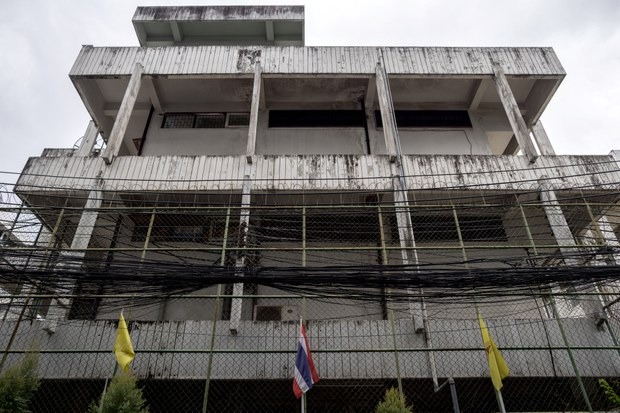The United Nations refugee agency has declined Thailand’s request to assist nearly 50 Uyghur asylum seekers held in the country’s detention centers for a decade because of fears of Chinese disapproval, an independent news agency reported, citing leaked internal documents.
The U.N. High Commissioner for Refugees, or UNHCR, denied the allegation, while a senior Thai official said he could not immediately confirm whether the government had sought the assistance of the U.N. agency.
The 48 Uyghurs were among more than 500 members of the mostly Muslim minority who fled from China’s Xinjiang Uyghur Autonomous Region to Southeast Asian countries in 2013 and 2014, according to Thai officials and aid groups trying to help them. They hoped to be resettled in Turkey, where some of them eventually traveled. More than 100 were sent back to China..
The New Humanitarian news agency, citing what it said were internal UNHCR documents dating back to 2020, said the Thai government had made an unofficial request to the refugee agency to help resolve the issue of the 48 detainees but the agency had advised against it.
“The Thai government began informally petitioning UNHCR almost five years ago to play a more active role in resolving the Uyghurs’ indefinite detention, and … agency staff advised against doing this,” the independent, nonprofit news agency said.
“The internal documents suggest that China’s influence also extends to the U.N.’s refugee agency, rights advocates who reviewed the documents said,” it reported.
A UNHCR spokesperson said the news agency’s suggestion that his agency had declined to help the detainees “would reflect a misunderstanding of what has transpired.”
“UNHCR has and continues to proactively raise this issue with the Thai authorities,” Babar Baloch, the UNHCR’s Asia-Pacific spokesperson, told RFA.
“Despite requests, however, at no stage have we been permitted to access the group or engage with the caseload for the purpose of facilitating solutions.”
But John Quinley III, director of the group Fortify Rights in Bangkok, told RFA that after reviewing the documents cited by The New Humanitarian he had concluded that “the UNHCR has been reluctant to actually react.”
“We would say that the U.N. is not proactively trying to solve the indefinite detention of Uyghur refugees … They are afraid of Beijing and the pushbacks that Beijing may have with UNHCR working to try to solve the Uyghur detention issue,” Quinley told RFA.
A Thai government spokesperson said he could not immediately confirm whether Thailand had approached the UNHCR for help to resolve the issue of the 48.
“I don’t have the information about the Uyghur matter, including Thailand’s reported request for UNHCR assistance,” Chai Watcharong told RFA.
Chai said he did not know whether the government of Prime Minister Srettha Thavisin, who replaced a former junta chief as premier after a general election last year, had “addressed the Uyghur issue at all.”
Some rights workers have said they have been disappointed by the new government’s lack of focus on human rights.
Officials at the National Security Council, or NSC, which advises the government on refugee matters, did not immediately respond to a request for comment from RFA.
Thailand, which is not a signatory of the 1951 Refugee Convention, has played host to hundreds of thousands of refugees from its Southeast Asian neighbors over the decades.
The 48 Uyghurs, who are being held as illegal immigrants not refugees, are enduring “poor living conditions” and are unable to speak to outsiders, an adviser to Thailand’s National Human Rights Commission, Rattikul Chansuriya, told a recent seminar. She said the Uyghurs could be in danger if repatriated to China.
The director of the People’s Empowerment Foundation, a Thai non-governmental group that helps Uyghur refugees, said the NSC had declined to grant access to the detainees.
“The NSC is strict. No matter how much we urge them to allow visits to the Uyghur detainees, it doesn’t happen due to China’s pressure,” said Chalida Tajaroensuk.
She said Chinese embassy officials keep a close watch on Uyghur detainees in Thailand. The embassy did not respond to requests for comment on the Uyghur detainees.








































